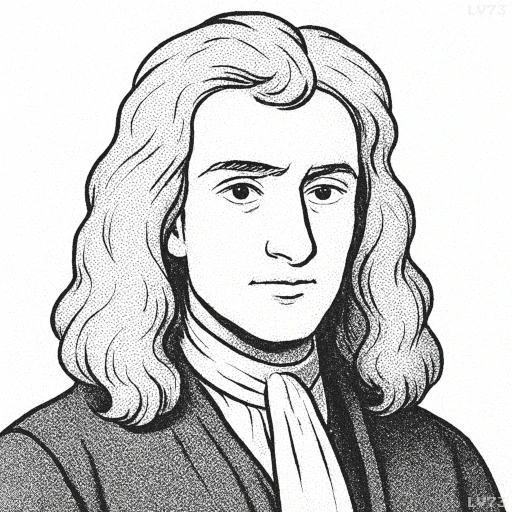“This most beautiful system of the sun, planets, and comets, could only proceed from the counsel and dominion of an intelligent and powerful Being.”

- January 4, 1643 – March 31, 1727
- Born in England (UK)
- Natural philosopher, mathematician, physicist, astronomer, theologian
table of contents
Quote
“This most beautiful system of the sun, planets, and comets, could only proceed from the counsel and dominion of an intelligent and powerful Being.”
Explanation
In this quote, Isaac Newton reflects on the order and harmony of the solar system, expressing the belief that such a complex and beautiful system could only have come into being through the guidance of a divine and intelligent creator. Newton, who developed the laws of motion and universal gravitation, saw the predictable movements of the sun, planets, and comets as evidence of rational design rather than chance. He argued that the precise mathematical laws governing the motions of celestial bodies were a clear indication of a higher intelligence—a powerful Being—who designed and sustains the universe. This view was consistent with Newton’s belief that science and religion were not in conflict, but rather that understanding the natural world through laws could lead to a deeper appreciation of God’s creation.
Newton’s worldview was shaped by the scientific revolution, during which many natural phenomena that were once seen as mysterious or chaotic were explained through rational, mathematical laws. Newton himself believed that the laws of nature were not random but instead reflected the purposeful design of a creator. His work in physics and astronomy reinforced his faith in the idea that the universe was governed by lawful order, a concept that was not only scientifically groundbreaking but also profoundly theological. To Newton, the fact that the cosmos operated according to predictable patterns was a testament to a divine intelligence that created and sustained it.
In modern times, Newton’s scientific discoveries continue to inspire awe and wonder at the natural world, and his belief in a creator is echoed by those who see the laws of nature as reflecting order and purpose. The discussion of the intelligent design of the universe, though debated in contemporary times, remains a key topic in both philosophy and theology. Newton’s view on the interconnectedness of science and faith reminds us that the quest for understanding the universe can be both an intellectual pursuit and a means of exploring the deeper questions about the origin and purpose of life and the cosmos.
Would you like to share your impressions or related stories about this quote in the comments section?
